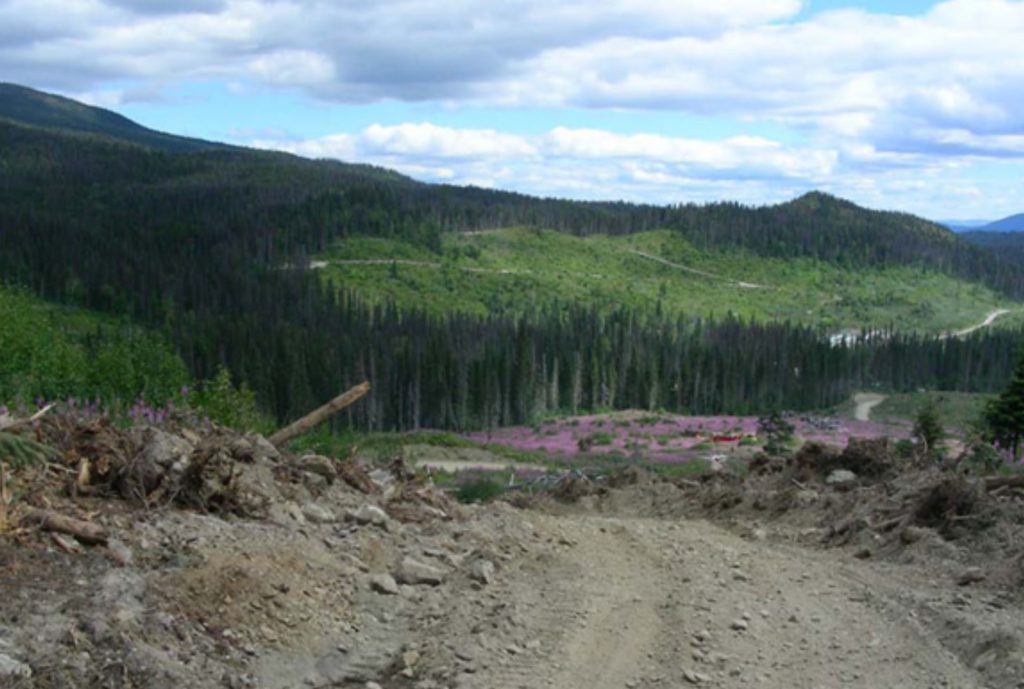FPX Nickel’s new tests continue to capture carbon using Baptiste tailings


FPX Nickel (TSXV: FPX) has unveiled results of new testing that continues to demonstrate the potential for enhanced carbon capture and storage (CCS) in tailings at its Baptiste project in central B.C. The testing was conducted by researchers from the University of British Columbia, and funded by FPX and the Government of Canada.
These laboratory tests build on more than a decade of research to maximize the reaction between carbon dioxide (CO2) and brucite, a highly CO2-reactive mineral form of magnesium hydroxide present in the Baptiste mine tailings, as opposed to serpentine, olivine and other silicates, which are the common constituents of other nickel and mafic rock tailings.
In a natural process called carbon mineralization, CO2 reacts with brucite, and to a very much less extent with serpentine minerals in the Baptiste tailings and waste rock, binding the CO2 in a benign, solid magnesium carbonate, which is stable on a geological time scale.
The latest tests were conducted on tailings representative of different operating scenarios at Baptiste to demonstrate the ability of these tailings to sequester CO2 into a permanent mineralized form. They were designed to assess the sequestration potential by injection of CO2 gas into material representative of three types of tailings samples.
Positive results of these CO2 injection tests were achieved on material representative of various tailings deposition strategies for the project, specifically in regard to the material's particle size, moisture level and content of the key carbon-reactive mineral brucite.
CO2 gas (10%) was injected vertically into these tailings samples, and consistent rates of carbon mineralization were achieved in all tests, ranging from 7.3 to 8.4 grams of CO2 sequestered for each kilogram of Baptiste tailings, with a majority of the sequestration occurring in the first quarter (3.5 days) of the 14-day experiment.
According to FPX, the CO2 mineralization achieved during these tests is both permanent and verifiable by measurement of total inorganic carbon at the beginning and the end of the experiments.
"Since 2016, FPX has been a leader in defining the opportunity for large-scale permanent CCS in the mining industry," said Martin Turenne, FPX Nickel's president and CEO. "These new results were achieved using representative tailings material generated from the 2021 metallurgical testing pilot plant program, highlighting our interest in moving beyond idealized experimental conditions to advance the scientific understanding of carbon mineralization in a practical, real-world context."
Previous laboratory and field tests conducted by UBC researchers have confirmed the ability of Baptiste tailings material to mineralize CO2 when exposed to air, and when subjected to direct injection of simulated flue gas containing 10% CO2.
"With further work required to estimate the likely quantum of carbon sequestration in an operational setting, we continue to advance toward our objective of developing Baptiste as the nickel industry's first carbon-neutral or carbon-negative operation," Turenne added.
As previously disclosed, the company is expanding the size and scope of carbon sequestration testing, with the two direct air capture experiments initiated in the third quarter of 2021. A six-month experiment on approximately 2.4 tonnes of tailings material is being planned, followed by a one-year experiment designed to better understanding the longer-term carbon sequestration potential of undisturbed tailings in the region.
The Baptiste deposit is part of FPX's100%-owned Decar nickel project, which covers 245 sq. km in the Mount Sidney Williams ultramafic-ophiolite complex, and is located 90 km northwest of Fort St. James.
Learn more about the Decar nickel district at www.FPXNickel.com.
Comments